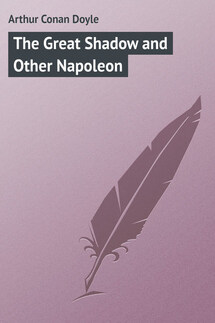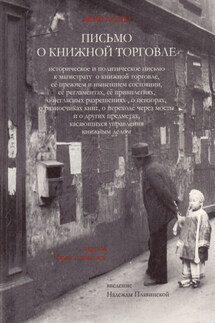The Great Boer War - страница 68
The Great Boer War
Книга The Great Boer War сейчас недоступна, скоро мы все починим. Попробуйте зайти позже.
Похожие книги
"The Valley of Fear" is the fourth and final Sherlock Holmes novel by Sir Arthur Conan Doyle. It is loosely based on the real-life exploits of the Molly Maguires and Pinkerton agent James McParland.
"The Great Shadow and other Napoleonic Tales", is an Action & Adventure novel published in 1892. The novel takes place in the Napoleonic era on the English-Scottish border city called West Inch. The Great Shadow refers to the Napoleon’s influence and his reputation that forms a shadow over West Inch.
The Parasite was an 1894 novelette about Austin Gilroy who studied physiology and knows a professor who studies the occult. The young man is introduced to a middle-aged woman known as Miss Penclosa, who has a crippled leg and psychic powers. Gilroy begins to visit this psychic and look at the physical part of her powers. Miss Penclosa falls in love with the unfortunate Gilroy. When she uses her powers on him, Gilroy is angered and rejects her. Sh
In 'Beyond the City', the desire for money and romance drives the characters beyond the typical boundaries of their middle class Victorian lives. Lust, deceit, and financial scandals rock their placid world. The girl next door is much more than ordinary in this surprising domestic romance by Arthur Conan Doyle. A remarkable departure from his famous detective stories, 'Beyond the City' explores the relationships between the residents of three adj
В книге рассказывается о складывающейся в мире обстановке, вступлении человечества в новый этап развития, мультикризисах, поколениях, которым уже в ближайшее время придется принимать на себя ответственность, нациях-гегемонах в технологической сфере и технологических корпорациях, чьи финансовые и интеллектуальные возможности стали превышать потенциал одного или нескольких государств вместе взятых.Затронуты темы инвестирования в технологические ком
Историческое и политическое письмо к магистрату о книжной торговле, её прежнем и нынешнем состоянии, её регламентах, её привилегиях, о негласных разрешениях, о цензорах, о разносчиках книг, о переходе через мосты и о других предметах, касающихся управления книжным делом.
Книга о Вацлаве Гавеле принадлежит перу Михаэла Жантовского, несколько лет работавшего пресс-секретарем президента Чехии. Однако это не просто воспоминания о знаменитом человеке -Жактовский пишет о жизни Гавела, о его философских взглядах, литературном творчестве и душевных метаниях, о том, как он боролся и как одерживал победы или поражения. Автору удалось создать впечатляющий психологический портрет человека, во многом определявшего судьбу не т
Экономика говорит, что мы должны потреблять больше: даже малейшее снижение расходов приводит к массовой безработице и банкротству.Планета говорит, что мы потребляем слишком много: в Америке сжигают ресурсы Земли в пять раз быстрее, чем она может восстанавливаться. И несмотря на усилия по «озеленению» нашего потребления путем переработки отходов, повышения энергоэффективности или использования солнечной энергии, мы пока не видим снижения глобальны
Чем еще заняться в чужом далеком городе Мечты, если всё пошло наперекосяк? Наверное, выйти замуж. Лучше бы удачно, еще лучше, если и не знать за кого… Это будет отличная история, чтобы рассказать ее лучшей подруге при встрече. Если она, конечно, не обзавелась за полгода твоего отсутствия мужем, взрослым сыном, кровным врагом и прочими приключениями. Главное, успеть всё рассказать…
Книга нацелена на выявление и осмысление концептуального содержания, характеризующего становление и развитие регионоведческой школы на материалах отечественной латиноамериканистики. При этом автор отдает предпочтение науковедческому (содержательному) подходу как антитезе наукометрическому формализму.Мощный вызов не только для практики развития на национальном, региональном и глобальном уровнях, но также для концептуального осмысления новых качест









